- VisitSupport Happy HollowDONATE TODAYExploreSupport Happy HollowDONATE TODAYLearnSupport Happy HollowDONATE TODAYSupport
-
Today's Hours: 10:00 am to 4:00 pm
Happy Hollow Blog
Sophia’s Legacy
May 30, 2025
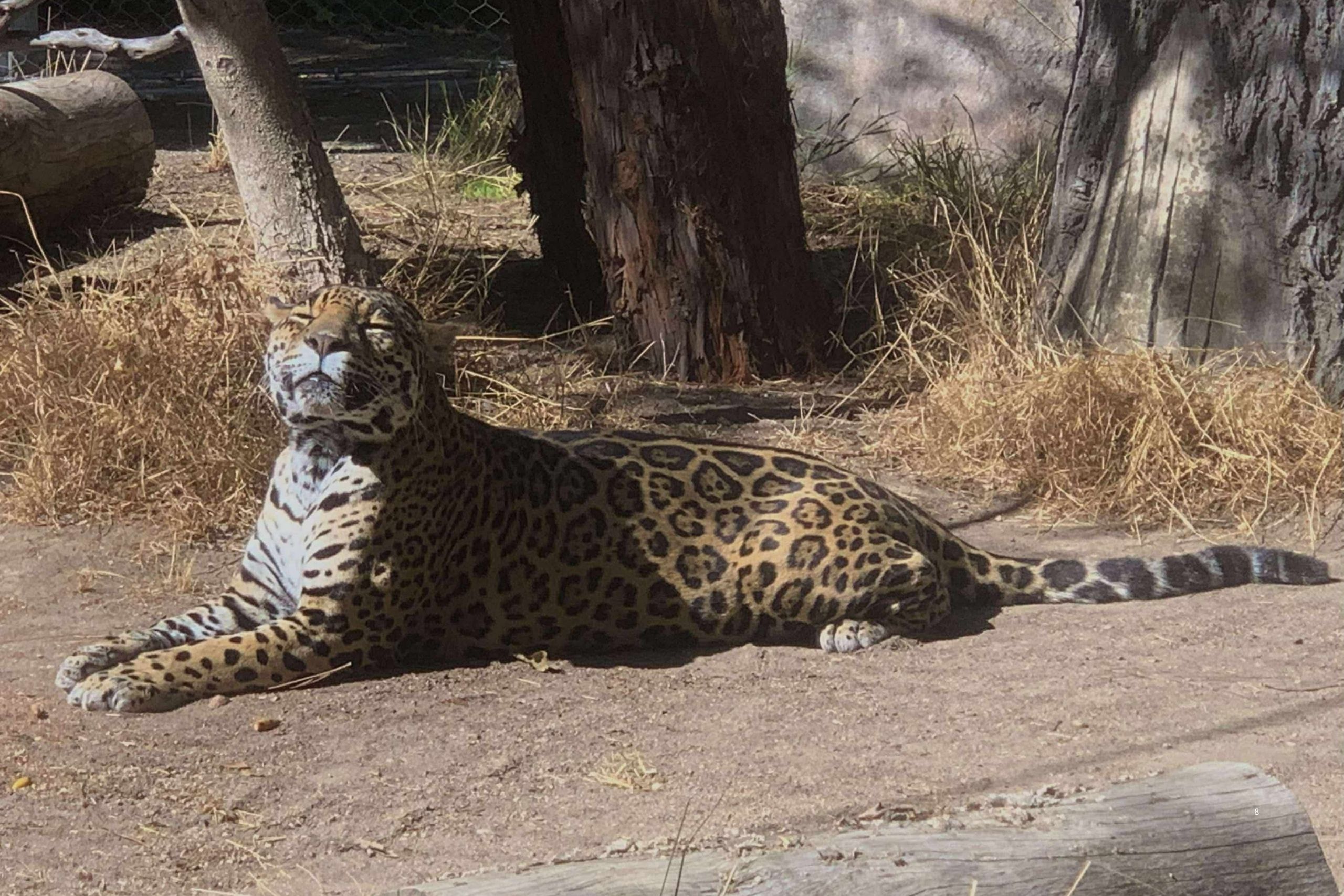
Written by Vet Tech Rachel; Photos by Keeper Sammy
Originally published: May 22, 2025
Updated: June 5, 2025
Caring for a Senior Jaguar: Sophia at 21
At 21 years old, Sophia the jaguar is currently one of the oldest jaguars at an Association of Zoos and Aquariums facility and has called Happy Hollow her home for over two decades. As she has grown up and grown old here, her care has become more specialized to accommodate the needs of a senior jaguar. Some accommodations can be made to the jaguar habitat to make it more accessible as she ages, such as the innovative modifications carried out through a collaboration between the Happy Hollow Zoo and Maintenance teams. Other care is in the form of direct veterinary treatment, which looks a little different for a jaguar than it might for your house cat.
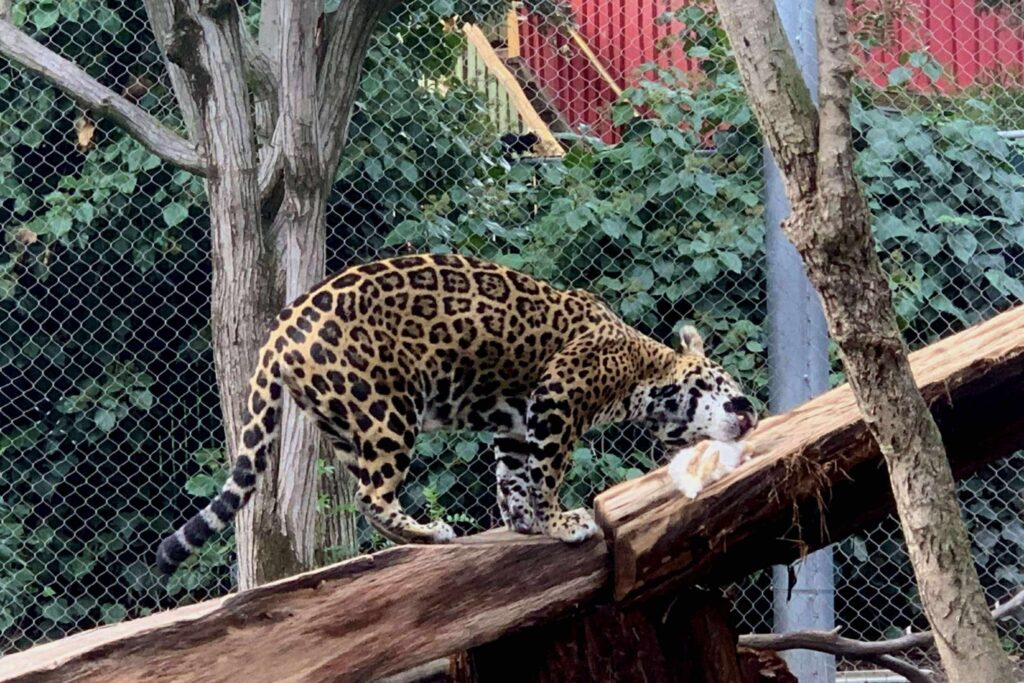
For Happy Hollow’s veterinary team, additional or specialized care for older zoo animals can be tricky, especially for potentially dangerous animals. Zoo staff work with Sophia through protected contact, meaning they do not touch or share space with her, for the safety of both the staff and the jaguar. Animals can’t tell us when there is a problem or they aren’t feeling well, and cats, like many animals, are good at hiding pain as an adaptation for survival in the wild. Sophia’s care team must be very observant and keep a close eye on her behavior, appetite, urination and defecation habits. They also weigh her regularly, like all of Happy Hollow’s animals, since changes in weight can indicate that something is wrong or that the animal is getting too much or not enough food for their age, activity level or health status.
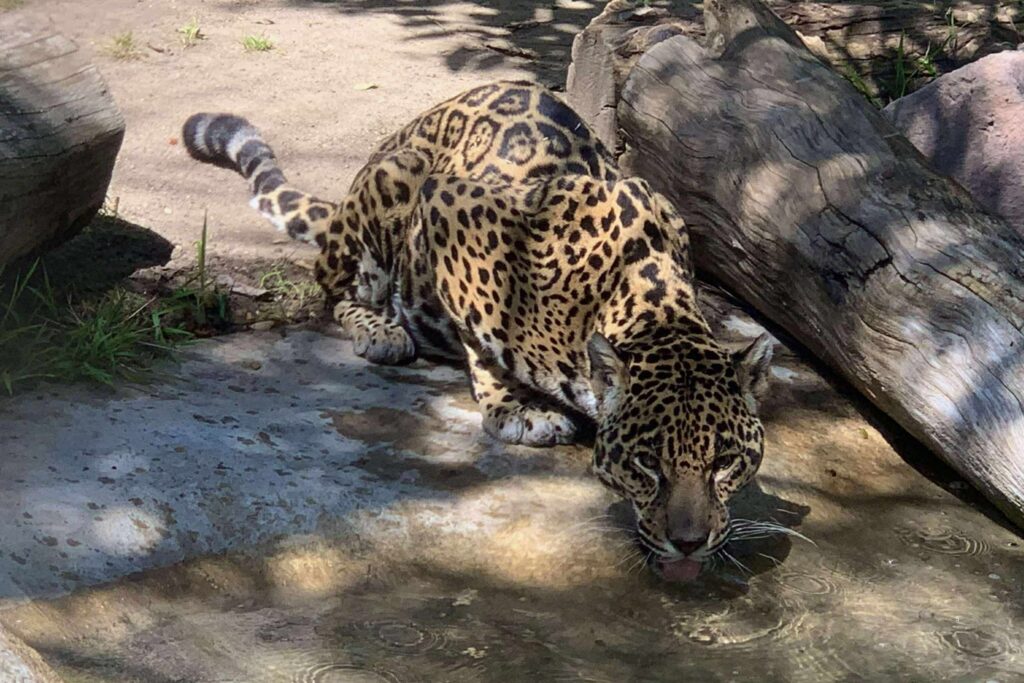
Weighing a jaguar while maintaining protected contact is a carefully choreographed process. First, zookeepers will set up a scale on the ground in part of Sophia’s space while it is closed off to her. Then, after exiting the area and securing all doors, they will open a different door to give Sophia access and ask her to come inside and get on the scale. If she wants to participate, she will get on the scale and her trainer will give her a small piece of pork meat – one of her favorite treats! After recording Sophia’s weight, the trainer will ask Sophia to move to a different secured area so they can safely enter and remove the scale.
Happy Hollow’s veterinary team also works closely with the zookeepers as they train animals for various other behaviors. Many of Happy Hollow’s animals are trained to station in a spot, go into a crate for transport, or show different parts of their body to their trainer. These behaviors allow animals to be voluntary participants in their own care, reducing potential stress by allowing zookeepers and veterinary staff to observe and examine an animal non-invasively. For Sophia, her trainer continues to work with her on behaviors that allow zookeepers and vet staff to see inside her mouth, the bottom of her feet, and her belly, and to watch her walk and jump – all without the need to be in direct contact with her. Sometimes clinical signs or a diagnosed condition will necessitate intervention with anesthesia, which always comes with some level of risk. In each circumstance, the team will weigh the risk of placing an older animal under anesthesia with the potential benefits that could be achieved. For example, in 2021, the veterinary team discovered that Sophia had a pyometra (uterine infection). This led to the decision to proceed with an emergency spay surgery, which resulted in a successful treatment a full recovery for Sophia.
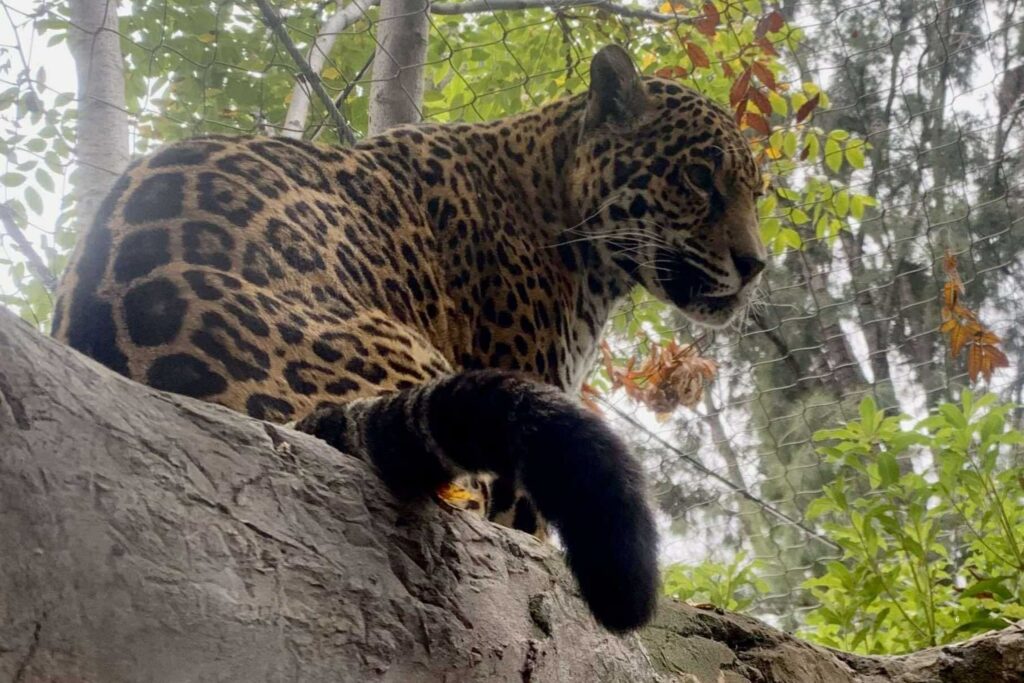
As Sophia ages, she has been prescribed medications and supplements to treat and prevent various conditions. One of the easiest and least-invasive ways to medicate many zoo animals is to hide or mix the medication into food. So, every day Sophia gets a few things mixed into her diet to treat some long term and age-related issues. For example, she was diagnosed with inflammatory bowel disease (IBD) many years ago, a chronic condition where the gastrointestinal tract becomes inflamed and irritated and which can affect the proper absorption of nutrients. She receives medication regularly for this, which manages the condition well. Sophia and many older animals can also have issues with their gut slowing down a bit and causing some constipation, so she gets extra fiber in her diet help keep things moving along. Like domestic cats, jaguars and other large cats are prone to kidney disease, especially as they get older. Happy Hollow’s veterinary program prioritizes preventative health, so even though she isn’t showing signs of kidney disease yet, she has been receiving a supplement in her food to make sure she is drinking enough water to keep her kidneys functioning. As of last year, her blood work showed that her kidneys were still working great!
With the dedication of Happy Hollow’s veterinary team and zoo staff, we deliver the best care every day to every animal, no matter their age!
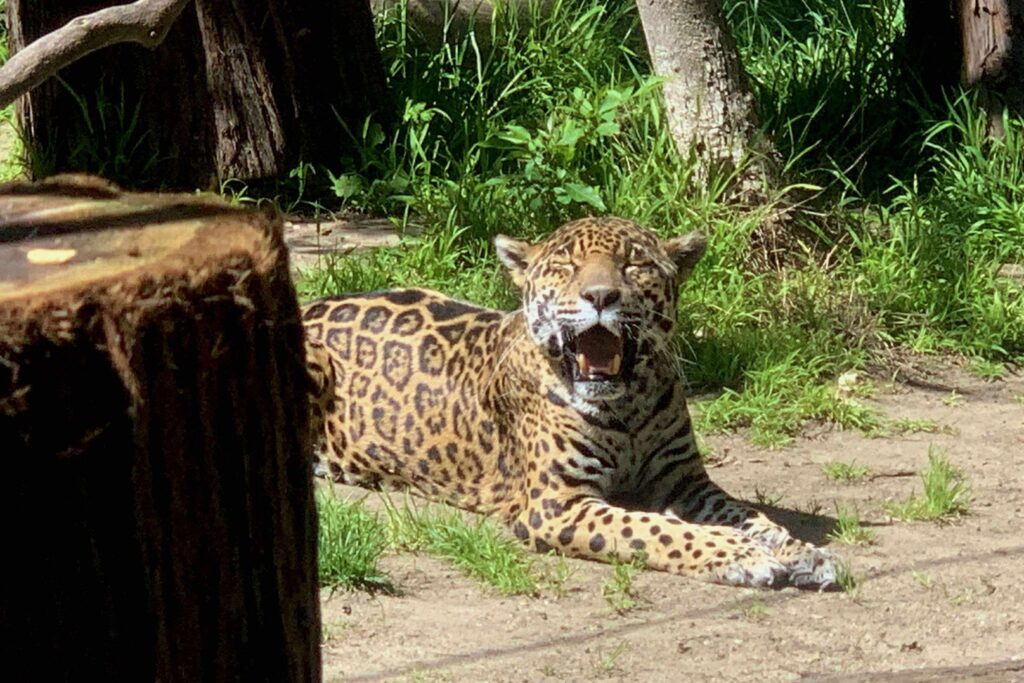
Sophia Health Update
May 31, 2025
Recently, Sophia’s care team observed some changes to her behavior and intermittent difficulty with her mobility. It was determined that a full exam under anesthesia was necessary, where the veterinary team could take X-rays, perform an ultrasound and get blood samples. While Sophia’s X-rays and ultrasound looked normal, her blood tests unfortunately showed that her kidneys are not functioning properly. Kidney disease is common in elderly cats (Sophia is 21 years old), and is a chronic, progressive and ultimately terminal condition. There are medications available to help manage kidney disease in cats, but the logistics of treating a jaguar are very different from treating a domestic cat at home.
For now, Sophia’s care team will be closely monitoring her behavior and food and medication intake, and will provide her with the best care possible to manage the condition, taking it one day at a time. We know that Sophia is a guest favorite and that many of our regular visitors look forward to stopping by the jaguar habitat on every trip. We appreciate your support and well wishes for Sophia and her care team, and we will keep the public updated as we are able while we work to make the best choices for her welfare.
June 5, 2025The Happy Hollow team is saddened to share that after a short but steady decline following her kidney disease diagnosis, the difficult but compassionate decision was made to help Sophia pass peacefully through humane euthanasia. Sophia has been a favorite at Happy Hollow Park & Zoo for the past 20 years, and the Happy Hollow team is honored to have had the opportunity to care for her for so long. Sophia was a symbol of the extraordinary connection between people and wildlife, and the epitome of an ambassador for her species. She inspired awe and admiration from guests and staff alike. Many local community members remember visiting Sophia at Happy Hollow as a foundational part of their childhood, and many Happy Hollow zookeepers worked with her for their entire Happy Hollow career. She will be greatly missed, but we are thankful for all that she gave us while she lived here at Happy Hollow.
We would love for you to share your fond memories or favorite photos of Sophia by tagging us on social media (@hhpzoo on Facebook and Instagram), dropping off a card, note or drawing at the zoo (we will have drop boxes in Guest Services and at the jaguar habitat), or by mail at 1300 Senter Rd, San Jose, CA 95112.
While Sophia will never be replaced in our hearts, Happy Hollow will be working with the Jaguar Species Survival Plan through the Association of Zoos and Aquariums (AZA) to determine how we can best continue to support AZA’s efforts to educate the public about these amazing animals and support their conservation. We do not yet have a timeline for bringing a new animal into the habitat but stay tuned for future updates on Happy Hollow’s social media and blog.